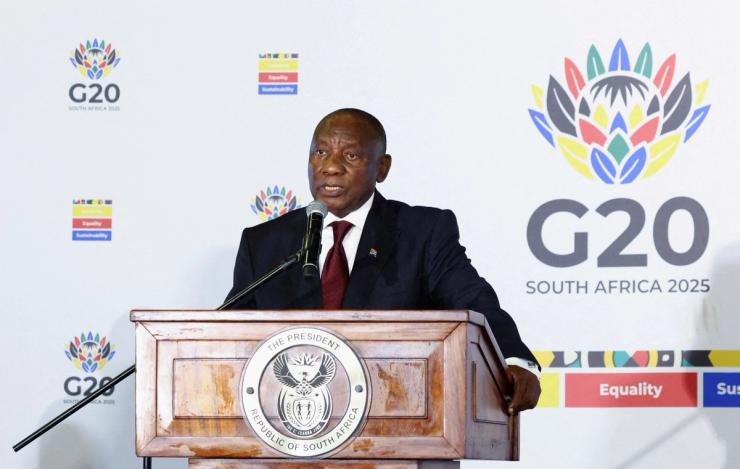Alexis’s view
Much of the talk here in Johannesburg, in the build up to the G20 summit, is about the future of multilateralism. It sounds grand but it’s an issue that will dictate so much in the coming years, from the way businesses approach global expansion to political issues surrounding migration and trade diplomacy. The fundamental question is whether Washington’s boycott of the summit, and the no-show by other leaders, is a blip in the world order, or symptomatic of a long-term shift toward naked self-interest.
A panel of experts has released a report that makes the case for using a multilateral approach to tackling debt challenges faced by several African countries. G20 economies should work with the IMF and other financial institutions to launch a new debt refinancing plan for low-income countries hit by heavy repayments, the panel recommended.
It’s clearly time for a new approach. Last year, nearly a third of the continent’s nations paid creditors more than those countries received in new financing, restricting funds available for spending on health and education. But these initiatives, however well intentioned, are tricky. The G20 “Common Framework” — a mechanism to speed up debt restructuring that was launched after the COVID-19 pandemic — has proved to be a slow, painful process. Ghana and Zambia, early test cases, implemented spending cuts and tax increases, and have taken years to make progress. It’s unsurprising that Senegal’s prime minister has pushed back at the idea of restructuring his country’s debt.
“The time for incrementalism has passed. We need bold and collective action now,” the experts wrote in their report. But they’ll need to back up this call to arms with a system that delivers clear wins.
In this article:
Room for Disagreement
“Restructuring governments need to weigh the necessity and optics of a smooth, fast restructuring against the degree of sufficient debt relief obtained,” wrote Yunnan Chen and Tom Hart in a blog post for the ODI Global think tank. They argued that debt treatments that are too shallow “risk plunging economies back into future restructurings if growth trajectories do not meet expectations.”
Notable
- The end of South Africa’s G20 presidency does not mean the end of its ability to promote efforts to ensure debt sustainability for low-income countries, wrote Danny Bradlow, professor of international development law and African economic Relations, in The Conversation.


